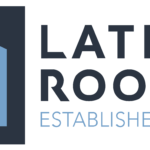Roofing Loans Made Easy: How to Find the Best Rates and Repayment Terms
Paragraph 1: Introduction
When it comes to upgrading or replacing your roof, the cost can be significant. A new roof is a major investment, but it’s essential for maintaining the integrity and value of your home. However, many homeowners struggle to save up for the expense upfront. That’s where roofing loans come in. But with so many options available, it can be challenging to find the best rate and repayment terms. This article will guide you through the process of finding a roofing loan that meets your needs and budget.
A roofing loan is a specialized type of loan designed to help homeowners finance their new roof. These loans often have more favorable terms and lower interest rates than a traditional personal loan or credit card. But to secure the best rate and repayment terms, you need to know what to look for. In this article, we’ll explore the ins and outs of roofing loans and provide you with valuable tips and advice to get the best deal.
Paragraph 2: Factors to Consider
Before you start shopping for a roofing loan, it’s essential to consider your financial situation and goals. Your credit score, income, and debt-to-income ratio all play a significant role in determining the interest rate you’ll qualify for. For example, if you have a high credit score (700+), you’re more likely to qualify for a lower interest rate than someone with a lower score. Additionally, your credit history and debt-to-income ratio can also impact the interest rate you’re offered.
Another crucial factor is the loan term. Typically, roofing loans have loan terms ranging from 2-10 years. However, the longer the term, the more interest you’ll pay over the life of the loan. But, if you’re expecting a higher income in the future, a longer-term loan might be a good option. On the other hand, if you anticipate a decrease in income or have a high-interest-rate loan, a shorter-term loan might be more beneficial.
Paragraph 3: Types of Roofing Loans
There are two primary types of roofing loans: secured and unsecured. A secured loan uses your home as collateral, which can result in better interest rates and terms. However, if you fail to make payments, the lender can foreclose on your home. An unsecured loan, on the other hand, does not require collateral, but usually has higher interest rates.
Another option is a Personal Line of Credit (PLC) loan. PLC loans allow you to access a credit line for specific expenses, such as roof repairs or replacements. While PLC loans can be less expensive than other options, they often have variable interest rates and may require a fixed payment schedule.
Paragraph 4: Interest Rates and Fees
Interest rates and fees are crucial aspects to consider when selecting a roofing loan. Interest rates can range from 3-12% or even higher, depending on the lender and your creditworthiness. Additionally, loans may come with origination fees, closing costs, and late payment fees, which can add up quickly.
To minimize your financial burden, look for lenders that offer low or 0% origination fees, and consider loans with fixed interest rates. In some cases, lenders might offer promotional rates or rebates, which can make the loan more attractive.
Paragraph 5: Lender Options
A variety of lenders offer roofing loans, including banks, credit unions, and specialty lenders. Online lenders can provide more competitive rates than traditional lenders, but also may have stricter credit score requirements. Credit unions can offer more personalized service, but may have limited branch networks.
When selecting a lender, research their reputation and reviews online. Check with the Better Business Bureau or Consumer Financial Protection Bureau for any complaints or issues filed against the lender. Don’t be afraid to reach out to multiple lenders for quotes and compare their offerings.
Paragraph 6: Pre-Approval
Before applying for a loan, it’s essential to get pre-approved. A pre-approval letter allows you to negotiate with builders and contractors with confidence. Additionally, a pre-approval letter can also serve as a guide for negotiating the best possible price with your contractor.
To obtain a pre-approval letter, you’ll need to provide financial information, credit reports, and proof of income. The lender will then review your application and provide a pre-approval letter stating the loan amount, interest rate, and repayment terms.
Paragraph 7: Loan Requirements
To qualify for a roofing loan, you typically need to meet specific financial requirements. Lenders generally require a minimum credit score of 600-700, although some may require a higher score. Income requirements vary, but usually, you’ll need a minimum income of $25,000 to $50,000 per year. Additionally, lenders may request proof of employment, and some may require a copy of your driver’s license or ID.
Paragraph 8: Repayment Terms
Repayment terms are a critical aspect to consider when selecting a roofing loan. Most loans are structured with monthly payments that can be fixed or adjustable. Fixed payments provide certainty, while adjustable payments might offer more flexibility.
Paragraph 9: Pros and Cons
Roofing loans can be beneficial for homeowners who need funding for a new roof, but it’s essential to weigh the pros and cons. On the plus side, roofing loans can help you finance a new roof without breaking the bank upfront. However, loans with high interest rates or poor repayment terms can lead to financial difficulties.
Paragraph 10: Conclusion
Finding the best roofing loan requires careful consideration of multiple factors, including your credit score, income, loan term, and lender. By understanding the different types of loans, interest rates, and fees, you can make an informed decision that meets your financial situation and goals. Remember to research lenders, get pre-approved, and carefully review the loan requirements and repayment terms before signing on the dotted line. With this knowledge, you’ll be well-equipped to find a roofing loan that helps you achieve your roofing goals.




